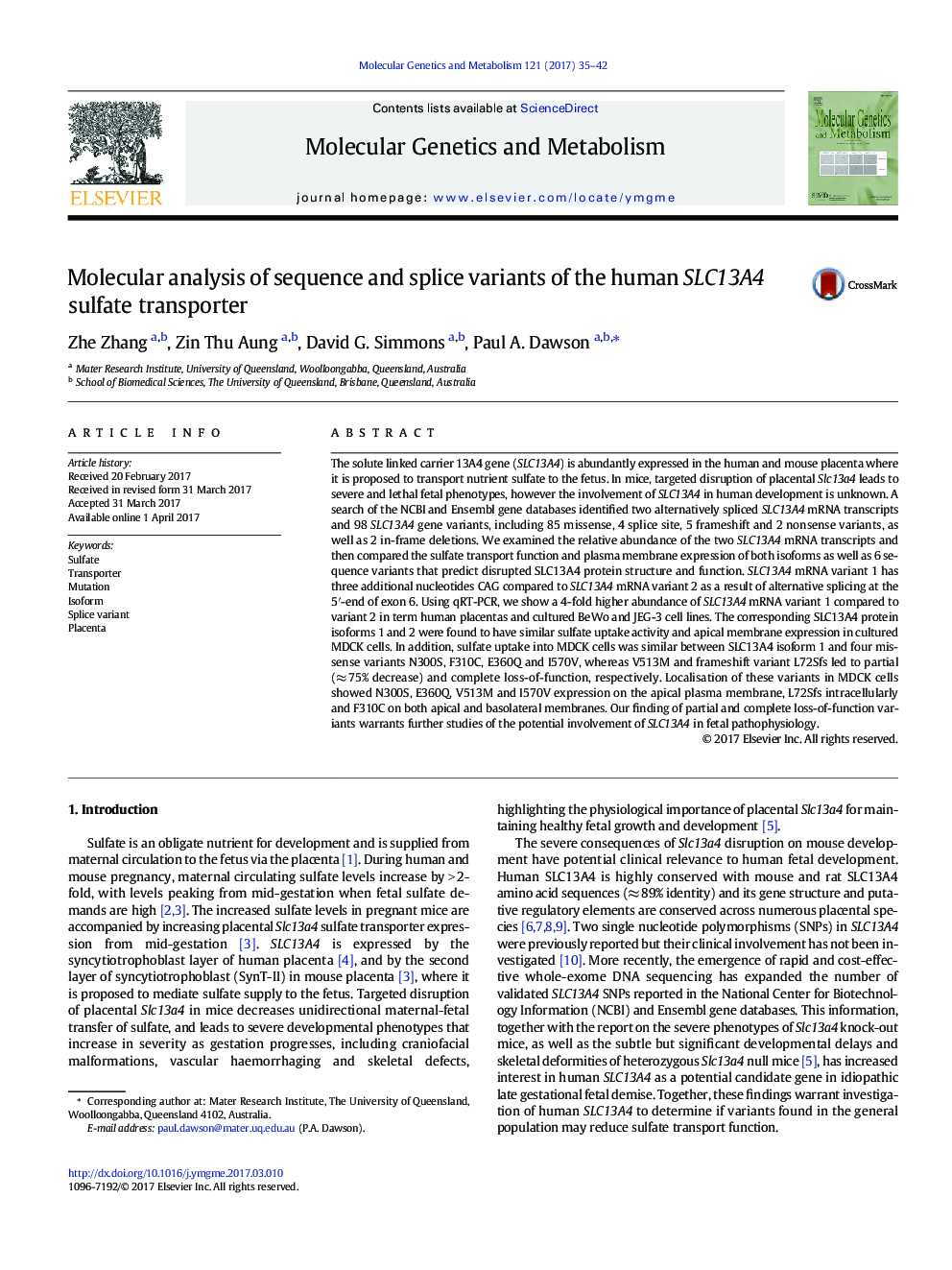| Article ID | Journal | Published Year | Pages | File Type |
|---|---|---|---|---|
| 5513961 | Molecular Genetics and Metabolism | 2017 | 8 Pages |
â¢We collated 98 validated variants in the SLC13A4 sulphate transporter geneâ¢4-fold higher mRNA level of SLC13A4 isoform 1 compared to isoform 2 in term placenta and cultured MDCK cellsâ¢SLC13A4 isoforms 1 and 2 have similar apical membrane expression in MDCK cellsâ¢SLC13A4 isoforms 1 and 2 have similar sulphate uptake into MDCK cellsâ¢Variants L72Sfs and V513M abolished and reduced sulphate transport function, respectively.
The solute linked carrier 13A4 gene (SLC13A4) is abundantly expressed in the human and mouse placenta where it is proposed to transport nutrient sulfate to the fetus. In mice, targeted disruption of placental Slc13a4 leads to severe and lethal fetal phenotypes, however the involvement of SLC13A4 in human development is unknown. A search of the NCBI and Ensembl gene databases identified two alternatively spliced SLC13A4 mRNA transcripts and 98 SLC13A4 gene variants, including 85 missense, 4 splice site, 5 frameshift and 2 nonsense variants, as well as 2 in-frame deletions. We examined the relative abundance of the two SLC13A4 mRNA transcripts and then compared the sulfate transport function and plasma membrane expression of both isoforms as well as 6 sequence variants that predict disrupted SLC13A4 protein structure and function. SLC13A4 mRNA variant 1 has three additional nucleotides CAG compared to SLC13A4 mRNA variant 2 as a result of alternative splicing at the 5â²-end of exon 6. Using qRT-PCR, we show a 4-fold higher abundance of SLC13A4 mRNA variant 1 compared to variant 2 in term human placentas and cultured BeWo and JEG-3 cell lines. The corresponding SLC13A4 protein isoforms 1 and 2 were found to have similar sulfate uptake activity and apical membrane expression in cultured MDCK cells. In addition, sulfate uptake into MDCK cells was similar between SLC13A4 isoform 1 and four missense variants N300S, F310C, E360Q and I570V, whereas V513M and frameshift variant L72Sfs led to partial (â 75% decrease) and complete loss-of-function, respectively. Localisation of these variants in MDCK cells showed N300S, E360Q, V513M and I570V expression on the apical plasma membrane, L72Sfs intracellularly and F310C on both apical and basolateral membranes. Our finding of partial and complete loss-of-function variants warrants further studies of the potential involvement of SLC13A4 in fetal pathophysiology.
